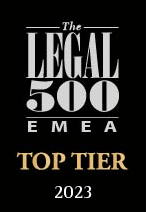The UAE is fast emerging as a hub for fintech companies in Middle East. In the bid to becoming an international financial powerhouse, the UAE government has pushed for initiatives in the fintech sector by establishing accelerators and sandboxes to create a supporting environment for innovation to flourish, particularly in the country’s renowned financial jurisdictions, namely, the Dubai International Financial Centre (DIFC) and the Abu Dhabi Global Markets (ADGM). The last year has seen these efforts bear fruit, marking the beginning of an exciting chapter that the UAE has not seen before.
Set out below are the hot jurisdictions for building your fintech company in the UAE:
1. DIFC Fintech Hive
Without doubt, the DIFC Fintech Hive is the place to be for budding fintech companies. Fintech companies incorporated in the DIFC will be regulated by the Dubai Financial Services Authority (DFSA) and not the mainland financial regulator, i.e., the Securities and Commodities Authority (SCA). You can read more about the financial regulatory landscape in the UAE here.
The advantage of the DFSA is that all communications can be in English (compared to Arabic in the case of the SCA) and there are already various forward-looking regulations (including the game-changing crowdfunding regulations) in place for fintech companies in the DIFC. What’s more, the license fees in Fintech Hive are reasonable for DIFC standards, and it has a nice co-working space which makes for a great overall environment.
It’s no surprise that the Fintech Hive boasts housing some of the up-and-coming names in the fintech space such as Sarwa (an online investment platform to invest in global markets), Eureeca (an equity crowdfunding platform), SmartCrowd (a real estate crowdfunding platform), and Beehive (a peer-to-peer lending platform.)
2. ADGM Fintech RegLab
If the DIFC is out of reach for you, it may be worth considering the ADGM Fintech RegLab which is a close contender to the DIFC. The ADGM can be more flexible than the DIFC and allows for innovative corporate structures to be worked out from this jurisdiction.
Again, fintech companies in the ADGM will be regulated by the Financial Services Regulatory Authority (FSRA) and not the SCA, which is an advantage. Like the DFSA, the FSRA is progressive and caters to today’s times – for example, the ADGM now has a regulatory framework for crypto assets, which is telling.
As an example of the popularity of the ADGM in the fintech space, BitOasis (the first cryptocurrency exchange in the Middle East) is now seeking to obtain an ADGM license, perhaps because of facing regulatory hurdles while operating onshore.
3. ADGM Tech License under its Entrepreneurship
Support Programme
The ADGM recently introduced the Tech Start-up license which only costs USD 750 a year. The license allows you to have four visas without the requirement of physical office space. That said, you would have to take a virtual office for a nominal annual fee from a law firm (such as ours) or a corporate service provider.
Although this is not a fintech license, this option may make sense for those start-ups who are still in the development phase of their business. Once developed, the start-up could then seek to be regulated by the FSRA and obtain a regular ADGM license.
4. Dubai Silicon Oasis’s Dubai Technology Entrepreneur Campus (Dtec)
Dtec is a good option if you want to be based onshore and in Dubai. It has an accelerator, a co-working space, and a venture capital unit, which is an attractive proposition.
One aspect that you will have to consider if you are setting up onshore is that the SCA would regulate your fintech start-up. This is not a drawback, but you will have to bear in mind that there could be delays or uncertainty regarding how your start-up’s activities will be regulated.
5. AstroLabs, Dubai(Dtec)
Astrolabs is another great onshore option for tech companies looking for a launchpad in Dubai, considering its cost-effectiveness, strategic location in the heart of Dubai, and well-received start-up academy and programs. Astrolabs has a fantastic co-working space and have partnered with Dubai Multi Commodity Centre (DMCC) to allow entrepreneurs to get a DMCC license at reduced costs.
It’s not the first choice for a fintech start-up, but if the DIFC or the ADGM do not work out for you, and you are at the initial development phase of your start-up, Astrolabs is an attractive option and a competitor to the Dtec.




